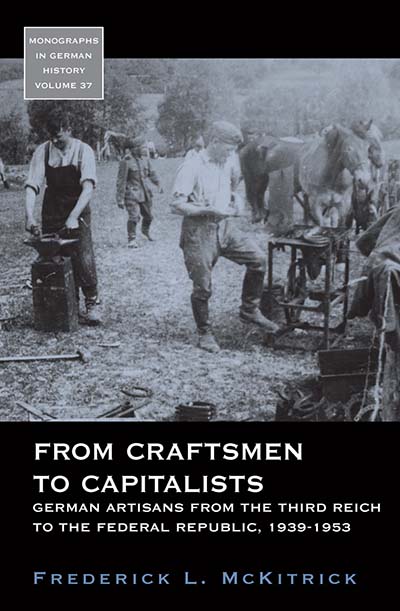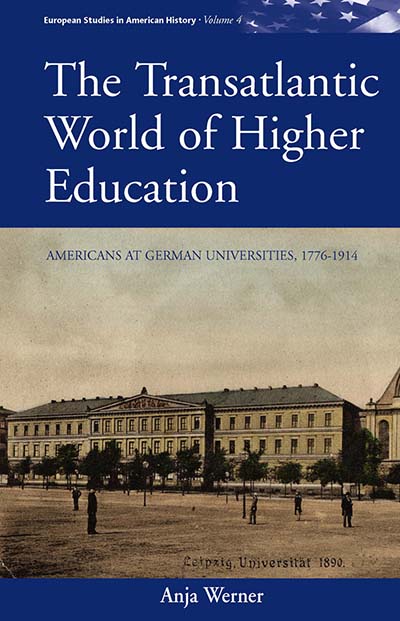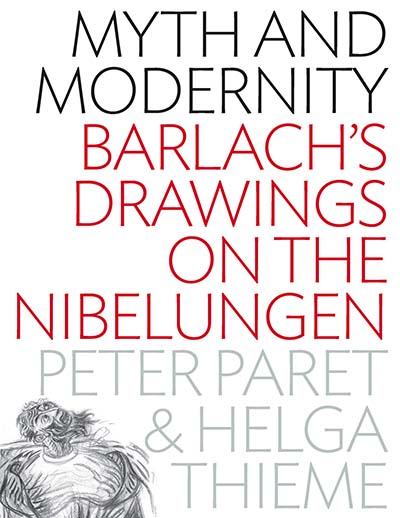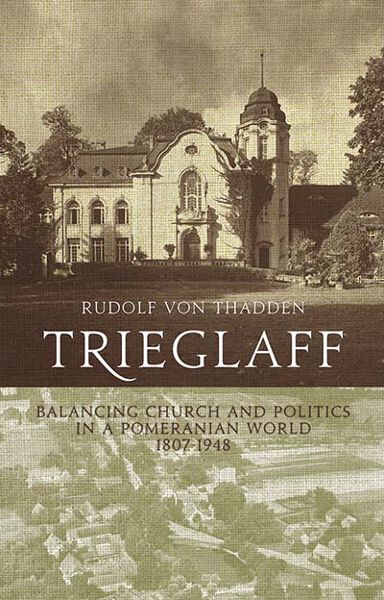
Series
Volume 37
Monographs in German History
See Related
History JournalsEmail Newsletters
Sign up for our email newsletters to get customized updates on new Berghahn publications.
From Craftsmen to Capitalists
German Artisans from the Third Reich to the Federal Republic, 1939-1953
Frederick L. McKitrick
308 pages, 11 tables, 2 figures, bibliog., index
ISBN 978-1-78533-248-7 $135.00/£104.00 / Hb / Published (September 2016)
ISBN 978-1-78920-531-2 $34.95/£27.95 / Pb / Published (December 2019)
eISBN 978-1-80758-874-8 eBook
Reviews
“…a well-researched, carefully argued, and convincing study of the modernization of German Handwerk during the Nazi and early postwar periods. It will be of interest to scholars examining the emergence of the German variety of capitalism, the modernizing or conservative intentions and effects of Nazism, or the bases of West German stability after 1945…It is a strength of this excellent study that while McKitrick focuses on the modernization of Handwerk, he also regularly acknowledges the variety of craft occupations and the persistent, sometimes not insubstantial resistance to Handwerk’s modernization.” • Journal of Modern History
“…thought-provoking and important… this is an exceptionally engaging, well-researched and important book that links the pre-1945 to the post-war period effectively and convincingly.” • German History
“Among historians, German Handwerker have typically been treated only in terms of their presumed Nazi sentiments or persistent economic backwardness. This extensively researched, well-written volume shows that these artisans were neither exclusively reactionary in their politics nor cynically sacrificed by the Nazis at the altar of the war economy.” • Jay Lockenour, Temple University
“This is an impressive study that bears directly upon important scholarly debates. McKitrick’s sympathy for the plight of tradespeople in a rapidly changing society is palpable, and he rightly handles their history with a due consideration of its complexity, rather than treating them as reactionary caricatures.” • Perry Biddiscombe, University of Victoria
Description
Politically adrift, alienated from Weimar society, and fearful of competition from industrial elites and the working class alike, the independent artisans of interwar Germany were a particularly receptive audience for National Socialist ideology. As Hitler consolidated power, they emerged as an important Nazi constituency, drawn by the party’s rejection of both capitalism and Bolshevism. Yet, in the years after 1945, the artisan class became one of the pillars of postwar stability, thoroughly integrated into German society. From Craftsmen to Capitalists gives the first account of this astonishing transformation, exploring how skilled tradesmen recast their historical traditions and forged alliances with former antagonists to help realize German democratization and recovery.
Frederick L. McKitrick received his doctorate from Columbia University. He is an Associate Professor in the Department of History and Anthropology at Monmouth University, New Jersey.




